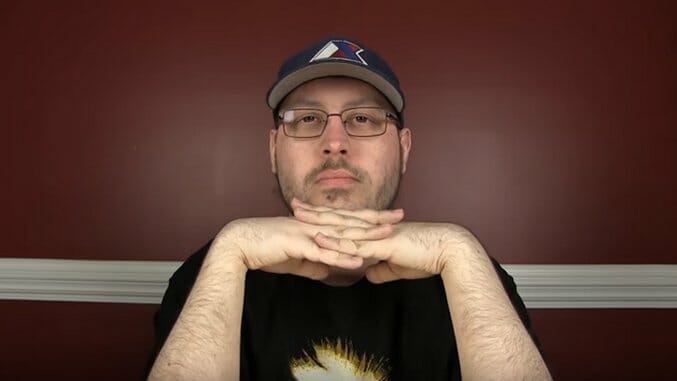Videogames Have a Personality Problem

Earlier this week, Kotaku UK ran an interview by Laura Kate Dale about internet harassment. The interview was of prominent YouTube content creator John “TotalBiscuit” Bain, and specifically about the ways that Bain has grappled with those who have gone out of their way to harass him personally or on his various channels or public personas.
The piece was the third in a loose series by Dale, and it’s the one that’s garnered the most controversy. Primarily, many readers found the choice of Bain as the mouthpiece for an interview about ‘dealing with the hate’ somewhat ill-suited—mostly due to the plethora of accusations that TotalBiscuit is behind a not-insignificant chunk of internet harassment himself.
It’s times like these when I think it necessary to reflect on the value we give to ‘established voices’. Games are a young medium, and the culture surrounding them younger still. Games media (that is, journalism, essays, peripheral media that surrounds the games themselves) was borne out of the unholy union of enthusiast press and traditional journalism. It’s always walked a fine line, somewhere between advertisement, criticism, and social commentary.
Couple that with the fact that games-as-culture has often felt the need for legitimacy via influential voices, and what we end up with is a culture that will excuse the sins of the powerful just to keep them in a position of ‘respect’.
This isn’t new, or that uncommon. We see it with John Bain being interviewed about ‘dealing with harassment’, we see it with Hideo Kojima’s comments about female characters being swept under the rug, and we see it with politically-centrist games like Bioshock: Infinite being considered groundbreaking political works.
It’s a vicious thing to canonize people. It doesn’t give them fair space to be criticized, and it doesn’t give an audience the space to make their own judgments. Nowadays, when YouTube can produce gaming figureheads seemingly once a day, the more traditional press finds itself dealing with both the relative youth of gaming as a culture and the influx of new voices often critical of established games media. Many YouTube content creators have expressed loud distaste for traditional games press, for legitimate and not-so-legitimate reasons.
Why did Bain get chosen for an article about harassment, when his own encouraging of it is so public, so easily found? Because of personality. In the case of TotalBiscuit, that personality has cultivated a largely uncritical fanbase that sees any accusations against Bain as facetious. It’s a path of fandom that leads to abuses on the part of the subject being downplayed or ignored. The recent public outing of Nick Robinson as a games figure who used his fame and influence for personal gain at the expense of his fans was also built on an uncritical fandom that brushed off criticism when it arose.
It’s not a good thing for the culture, and I know when I say ‘culture’ here that games don’t have a universal culture, they have many, and they’re often in conflict. The explosion of new media outlets, like YouTube, means that there are going to be even more ‘game cultures’ in the future.
But there’s a responsibility of those who have voices in these spaces to be critical of those we give space to. That can apply to John Bain as much as it can apply to PewDiePie, another YouTube celebrity who recently came under fire for his public enthusiasm for anti-Semitic jokes. These are symptoms of a greater problem, but just because they’re in games doesn’t mean they get a pass.
Any popular figure in a young medium will get attention, but just because they’re popular doesn’t mean they necessarily need a space at the table in every discussion. Especially when, like Bain, they have repeatedly shown that they don’t want to be a part of a conscientious discussion.
Dante Douglas is a writer, poet and game developer. You can find him on Twitter at @videodante.







































